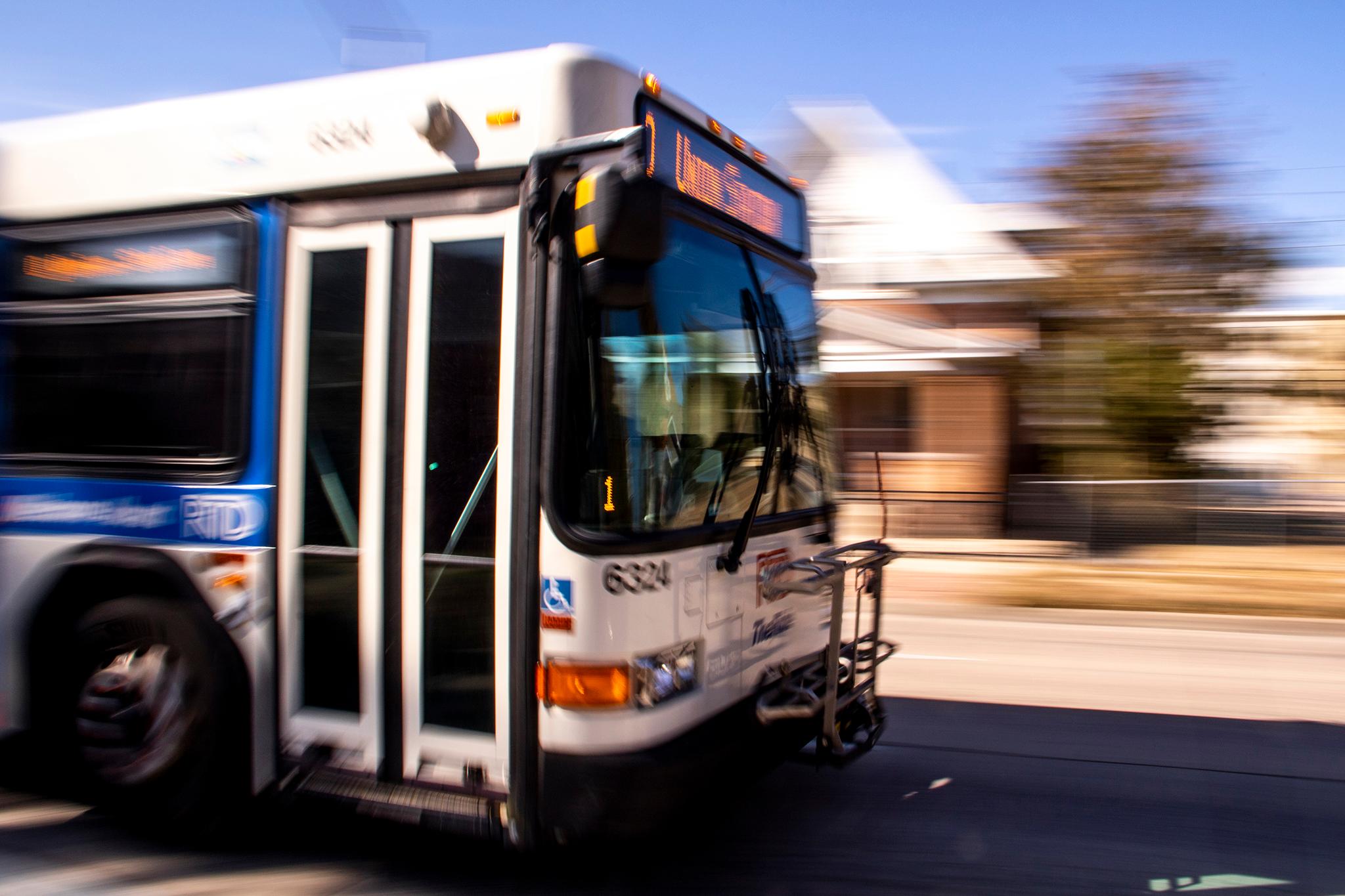
Two state lawmakers delivered a stern message to the Regional Transportation District on Tuesday: Come to the legislature with ideas on how to improve its services, or lawmakers will intervene.
"People email us and they call us,” state Rep. Tracy Kraft-Tharp, D-Arvada, told the RTD board. “They are unhappy because they went to the bus station and their bus didn't come. And they're hearing that their service is being cut. And so if you don't come to us with a solution, legislators will come up with the solution."
“And you won’t like it,” added state Sen. Rachel Zenzinger, D-Arvada.
There’s a lack of willingness on the legislature’s part to make changes that could benefit RTD, Zenzinger warned.
“Conversely, there is a lot of conversation about just ending it all together,” she said.
To head off any proposals to restructure RTD, Kraft-Tharp and Zenzinger said the board must proactively make its case to legislators.
“The good work that you are doing needs to be put in front of the legislature now more than ever, because there is a larger conversation happening — and for better or for worse, RTD is the fall guy,” Zenzinger said.
“We’d like to see that too,” replied board member Kate Williams.
The frank discussion was part of a special board meeting that was technically open to the public. The only public notice, however, was posted in the lobby of RTD’s office in downtown Denver. CPR News only learned of it when arriving ahead of RTD’s regularly scheduled board meeting.
Fellow Democrat state Rep. Chris Hansen, D-Denver, was also part of the discussion, but his comments focused on more general transportation funding issues.
The district is indeed considering making significant service cuts to give its overworked drivers a break. The board will discuss specifics this Thursday.
At the same time, overall ridership is down even as the agency has opened four new rail lines and a corridor extension in the last four years. And RTD had to make $40 million in relatively last-minute cuts to balance its books for 2020 after sales tax forecasts were revised downward.
It’s amid those realities that RTD launched a two-year effort called Reimagine RTD, meant to analyze itself and possibly make big changes to how it operates.
The powers that be at the legislature will be watching that process closely, Zenzinger said. She encouraged RTD board members to keep the legislature informed of the direction it’s heading, and to not waste time.
“It needs to be super critical that it happens sooner rather than later,” she said.
Some board members pointed to structural factors that they say strains RTD. With the exception of the 2004 FasTracks vote that raised sales taxes by .04 percent to fund new rail corridors, RTD’s revenue streams haven’t changed much in 40 years, noted board member Jeff Walker, even as the Denver area has added millions of people.
“I think it's worth looking at,” he said.
Board member Natalie Menten said current law caps the amount of service RTD can contract out at 58 percent. She said that will limit RTD’s ability to work with ride-hailing companies like Uber and scooter companies like Lime.
But Rep. Kraft-Tharp warned the board members to think carefully about how they make their case to lawmakers.
“Coming to the legislature and saying, ‘Please stop hamstringing us,’ I don't think you're going to get a very positive reaction,” she said. “I don't think you're going to find a lot of people that are likely trying to do you that favor, so much as seeing it as an opportunity to completely restructure.”
After the meeting, Zenzinger said the greater transportation system in Colorado needs serious attention and investment — and she wants RTD to be a vibrant part of those discussions.
Editor's Note: This story was updated to clarify what Rep. Chris Hansen said in the meeting.








